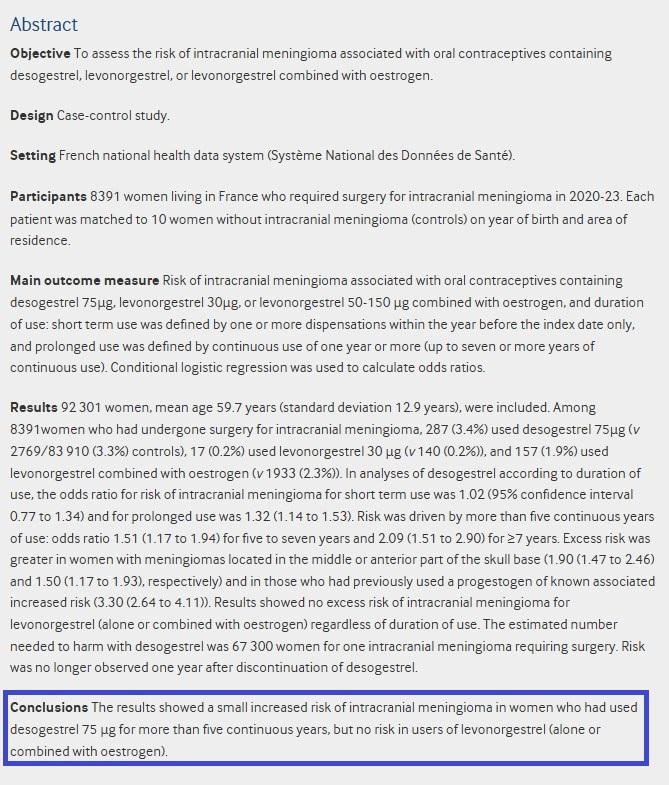
Posts misrepresent study findings on contraceptive pills
- Published on July 14, 2025 at 06:52
- 3 min read
- By Ara Eugenio, AFP Philippines
The photo of a half-used pack of Trust brand contraceptive pills was misleadingly shared on Facebook on June 30, 2025.
"Is this true? A new study has found a small but measurable increase in the risk of brain tumours linked to long-term use of the contraceptive pill desogestrel," says the Facebook post, referring to a hormone used in birth control pills (archived link).
The post goes on to state that women who took pills containing this hormone for more than five years faced a higher risk of intracranial meningioma -- a type of brain tumour -- than those who used it for a shorter period.
It notes that the heightened risk disappeared for women who stopped taking the pill after a year, and the study does not prove direct causation but supports cautious long-term use.
"In contrast, another synthetic hormone, levonorgestrel, showed no increased tumor risk, even after extended use," it adds.

Similar claims circulated on Facebook, including one that featured another brand, Lady.
The posts triggered a flurry of comments from concerned users.
"This is so sad if true. I've been using this brand for ten years," one user said.
Another commented: "This is why it's better to use the calendar method."
The brands Trust and Lady do not contain desogestrel but another hormone called levonorgestrel, according to the drugs database MIMS (archived here and here).
Keyword searches on Google found the misleading posts stem from a June 19 post on the Facebook page of Hashem Al-Ghaili, a content creator known for sharing science and technology-related stories (archived link).
The post does not mention any specific brand of pills but links to the study published in the British Medical Journal on June 11 (archived link).
The paper examined whether oral contraceptives containing desogestrel or levonorgestrel are linked to an increased risk of intracranial meningioma, based on data from women living in France who underwent surgery for the condition between 2020 and 2023.
"The results showed a small increased risk of intracranial meningioma in women who had used desogestrel 75 µg for more than five continuous years, but no risk in users of levonorgestrel (alone or combined with oestrogen)," reads part of its summary.

Given these findings, women over 45 or those who have been using desogestrel for more than five years should consult their doctor to assess whether continuing use remains the best option, Noémie Roland, assistant professor of epidemiology at University of Southern Denmark and one of the authors, told AFP on July 7 (archived link).
"The results of our study concerning levonorgestrel, alone or combined with oestrogen, and regardless of duration of use are reassuring," she added.
"Our findings show no elevated meningioma risk with the combined oestrogen-levonorgestrel contraceptive pill -- the most commonly prescribed oral contraceptive globally."
Marianne Austria, a gynaecologist from St. Clare's Medical Center in the Philippine capital Manila, separately told AFP on July 8 that hormonal birth control methods carry potential side effects such as headaches, nausea or, in very rare cases, blood clots (archived link).
But these can be managed under medical supervision, including by temporarily stopping the pill or switching to alternative contraceptive options.
"Taking pills remains to be one of the safest contraceptive measures that a woman can practice," Austria added.
AFP has previously reported on misinformation around reproductive health here.
Copyright © AFP 2017-2026. Any commercial use of this content requires a subscription. Click here to find out more.
Is there content that you would like AFP to fact-check? Get in touch.
Contact us
